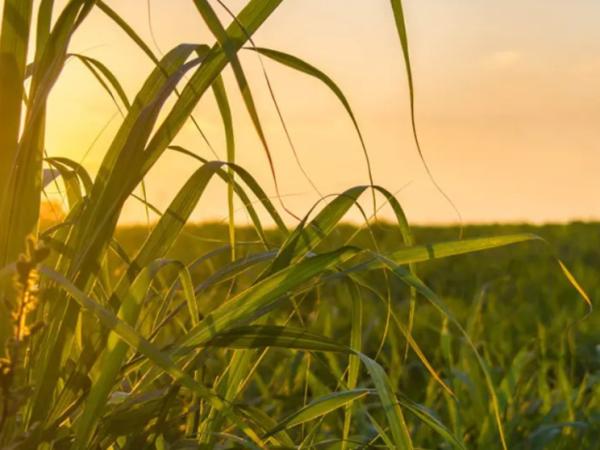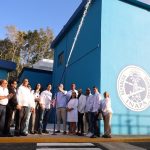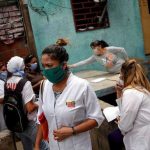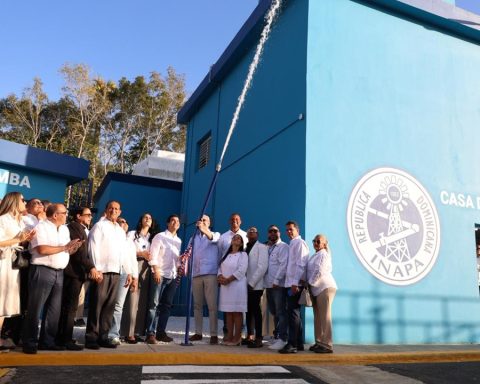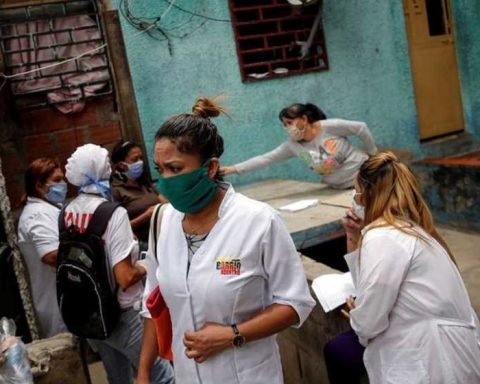Carrying out precision agriculture, with technological developments for the field from customized fertilizers or predictive weather stations, Precisagro advances with being one of the agroindustrial companies that seeks more productivity on earth.
(Read: ‘We want to be the exporting company of water pumps for agriculture’: Netafim)
In an interview, Juan José Cobos, general manager of the company, explained the operation of the business lines, how challenging the drought has been in the country and the progress they have made in sales with their innovation model for agriculture.
Of the business lines, which one has the most participation?
We are a fertilizer company, where this line participates 85% in Colombia. The others have a growth, but the percentage is still relatively small. Our approach is comprehensive customer service, which is why we sometimes accompany fertilizer with other services. For example, we sell the input but also the analysis.
We are comprehensive, so the other services, such as the soil study, allow us to provide a higher quality fertilizer, we add value and in the end the clients respond with a loyalty that has allowed us to grow consistently.
(Read more: Uniban acquires La Niña plant for expansion of Turbana Foods)
What is the study process to make the custom input?
We do a soil analysis, where the client sends us a sample, which gives us an idea of the potential. Subsequently, the soil solution is evaluated, which is what would be available at a given time for the plant to absorb.
The tissues of the leaves and fruits are also analyzed and there we determine what the plant absorbed. Through that we can know the potential, what is available at a moment and what was absorbed. The requirements of each plant are different.
With that information we make the fertilizer formula and deliver it to the client with the composition that their soil needs and that is the added value that we provide. It is also a multi-residue analysis. The most innovative thing that is being done is an analysis of soil genetics where there is enormous potential.
In fact, a third of our fertilizers contain microorganisms that help make soils more productive.
(See also: Fenalce requests to expedite recognition of national corn and soy chains)
Juan José Cobos, manager of Precisagro
Courtesy
Has the supply of raw materials improved?
We have one in Barranquilla and another in Yotoco, serving both coasts, Pacific and Atlantic. We bring raw materials from anywhere in the world. Currently, it is brought from wherever it is available in better conditions, with the qualities that are required, and taken to the plants. The supply is constant.
We may have 70,000 tons in Colombia, but then we have another 30,000 in the sea and we are buying. We are acquiring now what we are going to require in four months or planning the four-month requirement.
(Read: The Government’s strategies to stop the dairy crisis)
And has the price behavior stabilized?
Both the pandemic and the war between Russia and Ukraine have made raw material prices volatile. There was a point where European companies closed because it was not profitable to produce urea and the price of the fertilizer went through the roof.
Now there have been some dips, where they have managed to stabilize. Currently there is a slight upward trend in nitrogen and phosphorus and potassium shows a slight downward trend.
(Read more: Analysis: the effects of the increase in the price of coffee for the country’s growers)
How do you apply technology due to climate phenomena?
Today there are many technologies that are predictive, such as weather stations. This is part of the services we have in Colombia, where we have already added 170,000 hectares of digital agriculture.
Some of the services available, for example, are daily satellite images. Drones also provide similar information online and there are intelligent or predictive weather stations that show the customer the weather conditions, the susceptible areas and also the varieties in danger.
For example, if you are going to use an input, instead of using it on 100% of the farm, you use it on 5% or wherever required. We also generate the information that is generated upwards from the plant downwards. That is, I can measure temperature, conductivity and the humidity that is in the soil.
We work on a line of sensors that allow us to optimize and know when to water the field and the other one we offer are irrigation systems. This is a line in which for us it is incipient. We’ve only been there a year, but we want to grow and we believe it is very important.
In this we also do an agronomic analysis in conjunction with the hydraulic analysis. That is why it is important to have precision agriculture, even more so now with the climate phenomena.
(See also: Agriculture is consolidated as one of the engines of the Colombian economy)

precision agriculture
Courtesy
In what other countries do you have a presence?
We have a presence in southern Mexico, all of Central America. We have businesses in the Caribbean and even in Ecuador.
(Read more: Colombia breaks record in adoption of genetically modified crops)
How is Colombia positioned?
Colombia is a very important market. Here we sold about 320,000 tons of fertilizers. We see that it is a country that has a lot of potential to grow. I believe that there are four agricultural frontiers here: growing more, genetics in agriculture, the use of sleep and its treatment.
In Latin America, Colombia is the second country with the greatest growth potential. That’s why we believe there is a lot to do. In the genetics part we have a line of seeds, which we develop in Central America and we also represent several multinationals selling them.
For what crops do you develop seeds?
In Colombia we are only with corn. In Central America we have corn and we are also with multinationals in vegetables, with an important presence.
(See also: Agricultural exports grew 13.1% in value and 7% in volume during July)
And how are sales going this year?
The first months were complicated by the drought. For fertilizers, if there is no water, which is the motor for the transit of nutrients, it means a challenge. But after those first 4 months the pace is going well, he has recovered a lot. We are billing close to US$220 million, with 320,000 tons.

precision agriculture
Courtesy
Do you plan any type of investments here in the country?
We are betting on the growth of Colombia, because of the great potential and today the world needs to produce food. Bringing technology and seeing these agricultural frontiers, we firmly believe in great growth.
If they do things well and small producers begin to apply inputs to produce more, they can be more efficient and produce much more. In the end, more production requires more inputs and we believe in Colombia’s potential.
(See also: Why food and beverages was the spending division with the lowest variation in the CPI )
Why innovate in agriculture?
Colombia has a problem right now, young people are leaving the countryside because maybe it is not attractive. When you start using agriculture with satellites, weather stations, artificial intelligence models, etc., it becomes attractive to young people. Because they are digital natives and feel comfortable with these instruments, which returns them to the field and gives them tools to be much more productive.
Are you ready for the European Green Deal regulations?
We have a fertilizer called Nitro Xtend, this has a coated urea so that it is not lost due to the use of nitrogen. When you apply urea, which is what is most often applied here, some of the nitrogen is lost and converted into nitrous oxide.
This nitrous oxide has 300 times more greenhouse effect than CO2. So, by using a Nitro
This is just one of the strategies. Another has to do with the precision agriculture that we offer, because by placing the fertilizers that the soil needs in a non-generalized way, 90% of the products can be saved. Also a line of biological bioinput products that are a great complement to traditional agrochemicals.
(Read: Agro, the most important non-mining sector in the relationship with the United States)
